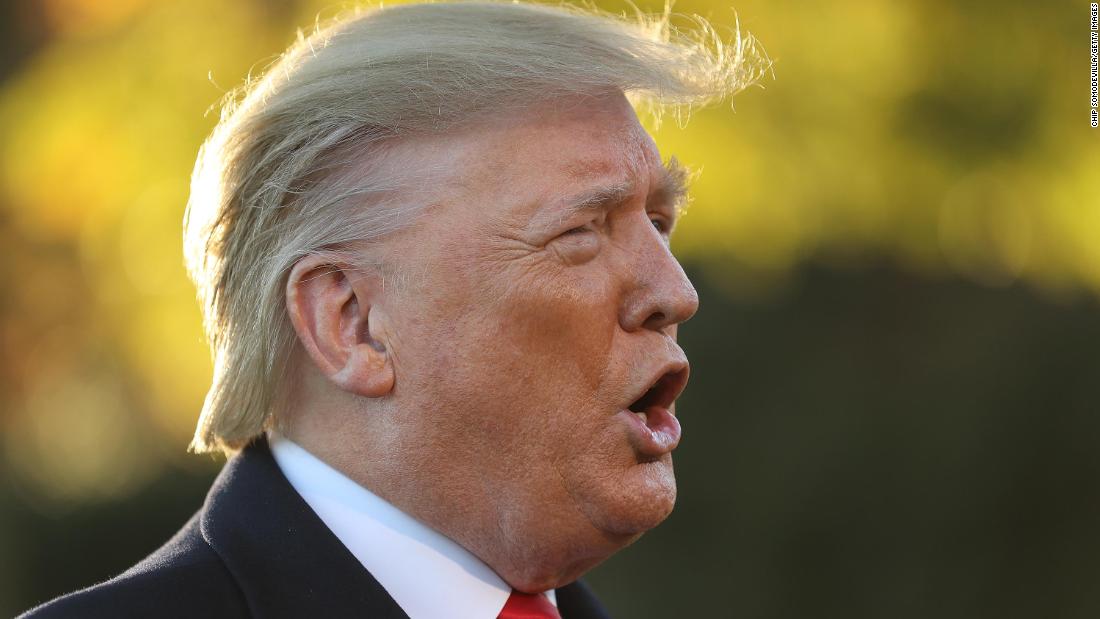
Both decisions are likely to be tested at the Supreme Court in upcoming months. Yet both were grounded in long-standing precedent and may face a tough road toward reversal.
These cases and others arising from investigators' efforts to obtain Trump documents or testimony began well before the US House of Representatives formalized its impeachment inquiry. Yet, as happened in litigation during the impeachment-related efforts against Richard Nixon in the early 1970s and Bill Clinton in the late 1990s, judges' rulings could determine the scope of evidence eventually available to House investigators.
Notably in the newest case, the New York-based federal appeals court rebuffed the Trump lawyers' broad assertion of immunity from criminal investigation.
Last month, during a 2nd US Circuit Court of Appeals hearing, Trump lawyer Will Consovoy told the appeals court judges that even if the President shot someone on Fifth Avenue in New York, he could not be subject to any state criminal proceeding while in office.
The 2nd Circuit panel sidestepped such hypotheticals from that October 23 hearing, but the judges did emphasize that Consovoy had argued that the President, while he occupies the White House, is absolutely immune from all stages of a state criminal process.
"We have no occasion to decide today the precise contours and limitations of presidential immunity from prosecution," wrote Robert Katzmann, the chief judge for the 2nd US Circuit Court of Appeals. "Instead, after reviewing historical and legal precedent, we conclude only that presidential immunity does not bar the enforcement of a state grand jury subpoena directing a third party to produce non-privileged material, even when the subject matter under investigation pertains to the President."
New York District Attorney Cyrus Vance is looking into hush-money payments made to two women who claim they had affairs with Trump before he was President. Trump has denied having affairs with those women. A grand jury subpoenaed tax and other financial documents from Trump's longtime accountants, Mazars USA.
Katzmann grounded Monday's ruling in the 1974 landmark decision in United States v. Nixon, which declared the president cannot be shielded from a criminal investigation. Katzmann emphasized the importance of a grand jury's work and a state investigation, especially in this situation involving Trump's personal business rather than his activities in office.
The US v. Nixon case tested whether the Oval Office tapes tied to the Watergate cover-up were protected by executive privilege. In a unanimous decision, the court concluded that the fundamental demands of due process and need for evidence in a criminal trial overrode Nixon's assertion that he had a constitutional right to keep communications private.
In the case of Trump v. Vance, Katzmann wrote that it would "exact a heavy toll on our criminal justice system to prohibit a state from even investigating potential crimes committed by him for potential later prosecution, or by other persons, not protected by any immunity, simply because the proof of those alleged crimes involves the President."
Monday's ruling follows last month's decision by a Washington, DC-based US appeals court robustly interpreting Congress' oversight power. That case also arose from an effort to obtain financial documents from Mazars USA, but by the US House of Representatives. That October 11 decision by the US Court of Appeals for the District of Columbia Circuit was expansively written and reflected the judiciary's entrenched regard for Congress' oversight authority.
The President's lawyers have asked for a hearing before the full 11-judge DC Circuit before any appeal to the US Supreme Court.
Appeal to Supreme Court coming
Trump's personal lawyer Jay Sekulow said on Monday that the President would appeal the 2nd Circuit decision to the Supreme Court. Lawyers for both sides have already worked out an expedited briefing schedule that could mean a swift hearing in upcoming months by the nine justices.
Trump's legal team has argued that the Constitution prohibits a district attorney from criminally investigating, prosecuting or indicting the President while he is in office. Backed by the US Department of Justice, Trump's personal lawyers have pointed to the President's core powers under Article II of the Constitution and the Supremacy Clause and argued that the executive should be protected from the distractions of litigation. (Justice Department rules dating to the Nixon era dictate that a president cannot be criminally indicted while in office; that policy has never been tested at the Supreme Court.)
Trump had lost at the first level of the three-tiered federal judiciary, before US District Judge Victor Marrero. On Monday the appeals court affirmed Marrero's assessment against immunity for Trump. The three-judge panel concluded that Trump is unlikely to succeed on the merits of his claim so he could not win any injunction of Marrero's ruling.
Katzmann said none of the materials sought by the Mazars subpoena fall under executive privilege because they are unrelated to Trump's official work. Referring to the 1974 landmark ruling, he added that "The President has not persuasively explained why, if executive privilege did not preclude enforcement of the subpoena issued in (the) Nixon (case), the Mazars subpoena must be enjoined despite seeking no privileged information and bearing no relation to the President's performance of his official functions."
The judicial panel emphasized that its decision was narrow. It did, however, drop a footnote tied to the controversy over Trump's taxes, which began during his candidacy:
"We note that the past six presidents, dating back to President (Jimmy) Carter, all voluntarily released their tax returns to the public. While we do not place dispositive weight on this fact, it reinforces our conclusion that the disclosure of personal financial information, standing alone, is unlikely to impair the President in performing the duties of his office."
Bagikan Berita Ini














0 Response to "Rulings against Trump on his tax returns may be tough to reverse"
Post a Comment